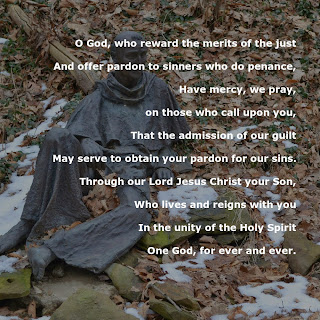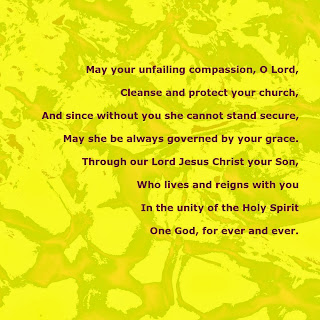Let us see
whether his words be true;
let us find out what will happen to him.
For if the just one be the son of God, he will defend him and deliver him from the hand of his foes.
let us find out what will happen to him.
For if the just one be the son of God, he will defend him and deliver him from the hand of his foes.
Good Friday is still two weeks away but our scriptures are leading us already into the vortex of violence that is the Passion of Jesus.
Our first reading from the Book of Wisdom describes the
thinking of “the wicked,” of those who despise “the just one. “
There is something eerily familiar about their conversation.
We’ve all heard people complain about the “goody-two-shoes” whose mild manner,
pleasant disposition and unwillingness to engage in gossip irritates those
around her. Friendly vulnerability seems to invite mockery.
This passage from Wisdom evokes high school memories. I’d
like to think most adults have outgrown that stage of development; but in the
workplace or the social setting there are some holdovers who still look for
victims. For whatever reason they never grew up. They still think it’s cool to
be vicious.
This Old Testament passage raises uneasy fears in me. What
if there are societies where the wicked set the tone for everyone else? Unchallenged,
they look for people to belittle, snub and torment.
The movie Hidden Figures gently evoked painful
memories of a not-distant past when African-Americans lived in a hostile
country. The intelligent, attractive women in the film had to continually guard
their thoughts and feelings when associating with white colleagues.
The “Black Lives Matter” movement tells us things have changed
little in many parts of the United States. It is still dangerous to be DWB -- “driving
while black.”
The advances of the Muslim religion in Europe and the United
States may be in direct response to the cloud of suspicion that hovers over the
them. If “The blood of martyrs is the seed of the Church” as Tertullian said, suspicion
and ostracism may actually encourage Christians to reconsider and join Islam. Courage
is always more attractive than cowardice.
In the land of the
free and home of the brave the courageous are willing to live with a
minority status; they are also willing to challenge the violent attitudes of
their contemporaries.
Bu today patriotism must challenge a rising tide of nationalism; the two are
diametrically opposed. The Second World War should have persuaded us to shun those atavistic attitudes. Patriots finds nothing amusing or attractive about violence. They
support and promote the four
freedoms of speech, of worship, from want and from fear especially when
those freedoms are challenged by the wicked.

















